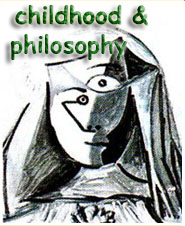the becoming-deficient pedagogy: notes for anthropology philosophicaleducational of plasticity
DOI:
https://doi.org/10.12957/childphilo.2016.22922Keywords:
devir-deficiente, plasticidade, antropotécnicas, formação humanaAbstract
This essay discusses the formative processes while antropotechnic processes. The expectation is to contribute for the debate about the meanings inherent in speeches that promote and disseminate multiple devices for inclusion of differences. The central argument defends that the abandonment of reflection on the notion of plasticity has deprived the philosophy of education to think the exposure processes of lives that do not allow themselves to double the existing normative codes, hiding a possible becomingdeficient's own pedagogy. The becoming-deficient pedagogy goes through expressive manifestations of the life forms that explode and are made disaster. Plasticity is configured so as a condition of possibility and as a threat to domesticating humanism. Following the reflections of Peter Sloterdijk and Catherine Malabou, plasticity is thought of as an indication that all human life is an unavoidable accident, and disability only a limit on biopolitics attempts to reconstruct an ideal or totalizing model of the human. Disabled people can save some disturbing lessons about our pedagogical maxims. The becoming-deficient pedagogy points an ethical-political will to think about human development beyond the notion of perfectibility, jeopardizing one of the esoteric secrets of Western pedagogical reflection.Downloads
Download data is not yet available.
Downloads
Published
2016-08-06
Issue
Section
dossier



